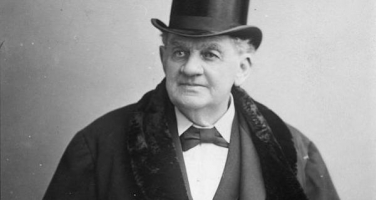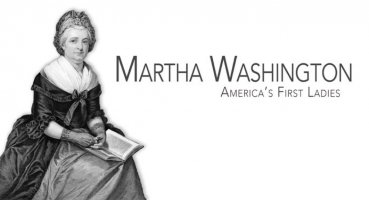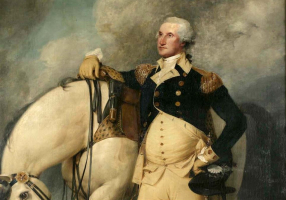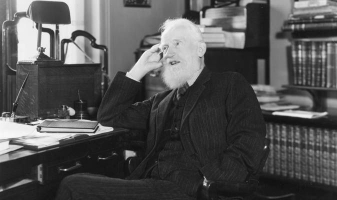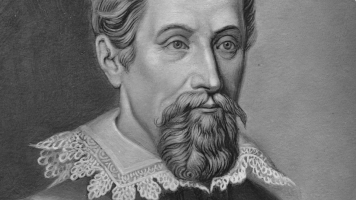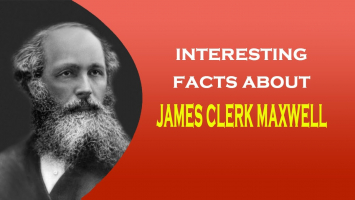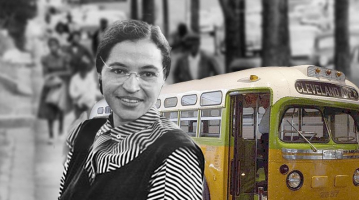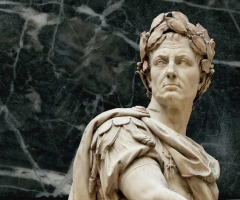Top 10 Interesting Facts about Booker T. Washington
Born into slavery, Booker T. Washington (1856–1915) developed into one of the major African American thinkers of the 19th century, founded the National Negro ... read more...Business League in 1881, and Tuskegee Normal and Industrial Institute (now Tuskegee University) two decades later. Theodore Roosevelt and William Howard Taft received advice from Washington. Despite his infamous disagreements over segregation with Black leaders like W. E. B. Du Bois, is now regarded as the most significant African American speaker of his era. There are many interesting facts about Booker T. Washington you should not miss below!
-
First of all, one of the most interesting facts about Booker T. Washington is He had to mop the floor for his entrance exam at the school. Booker T. Washington, then sixteen years old, walked over 500 miles from Malden to Hampton in 1872 to attend the Hampton Normal and Agricultural Institute. He was starving and broke when he arrived in Hampton. Miss Mackie, the head teacher, did not feel sorry for him. Instead, she instructed him to sweep the floor as a test. Washington accepted the challenge and cleaned the walls, mopped the floor, and swept it three times. Then Miss Mackie used a clean, white handkerchief to look over his work. She permitted Washington entry to the school after being moved by his diligence. General Samuel C. Armstrong, the school's founder, and headmaster, soon took note of him and awarded him a scholarship. Armstrong later served as his mentor. However, to cover the expense of his accommodation and board, he was forced to work as a janitor.
Washington left Hampton University with a degree in 1875 and returned to his former elementary school in Malden, Virginia. After being selected to speak at Hampton's graduation in 1879, General Armstrong gave him a position as a teacher at his school. He later attended Wayland Seminary (now Virginia Union University) in Washington, D.C.
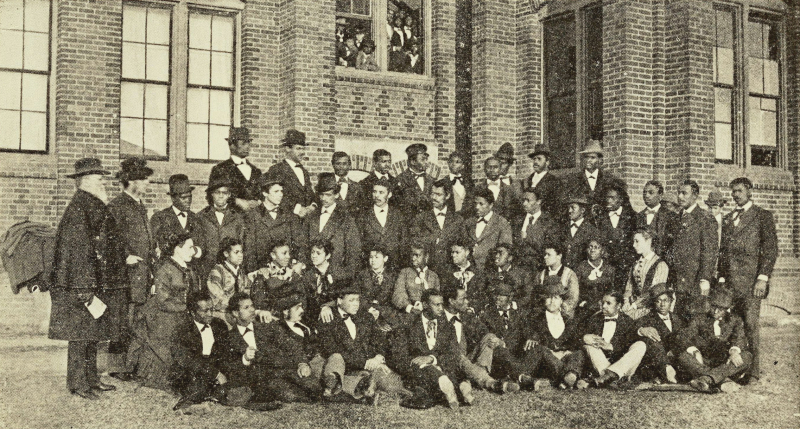
Photo: https://commons.wikimedia.org/ 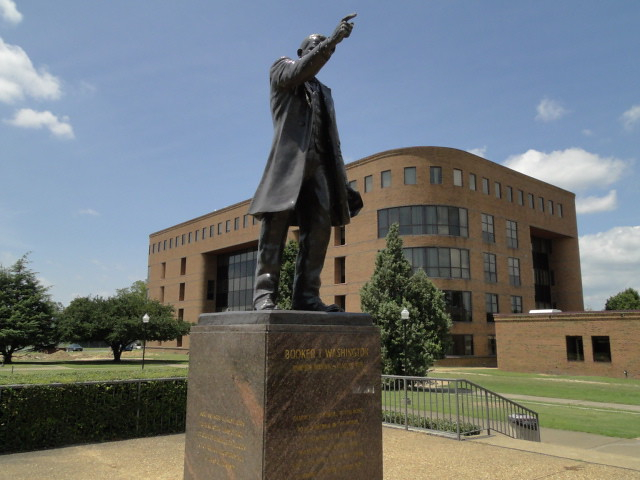
Photo: https://www.flickr.com/ -
Booker T. Washington was the first African-American on a U.S. Postage Stamp, which is one of the most interesting facts about Booker T. Washington. Washington received an honorary master's degree from Harvard University in 1896 in recognition of his contributions to American culture. In 1901, Dartmouth College awarded him an honorary doctorate. Booker T. Washington made history on April 7, 1940, when he became the first African American to appear on a US postal stamp. The stamp was a part of the Famous Americans Series issued by the Postal Service. As the first significant ocean-going vessel to have an African American name, the liberty ship Booker T. Washington was christened in his honor in 1942. He was shown in 1946 on the Booker T. Washington Memorial Half Dollar, which the US issued until 1951. He became the first African American to appear on an American coin as a result.
In 1938, President Franklin D. Roosevelt stated that Booker T. Washington deserved to be considered for inclusion in the Famous Americans series after receiving several requests for a stamp honoring him throughout the 1930s. For the 100th anniversary of his birth, the Postal Service again honored Washington in 1956 with a stamp that featured a picture of the log home where he was born.
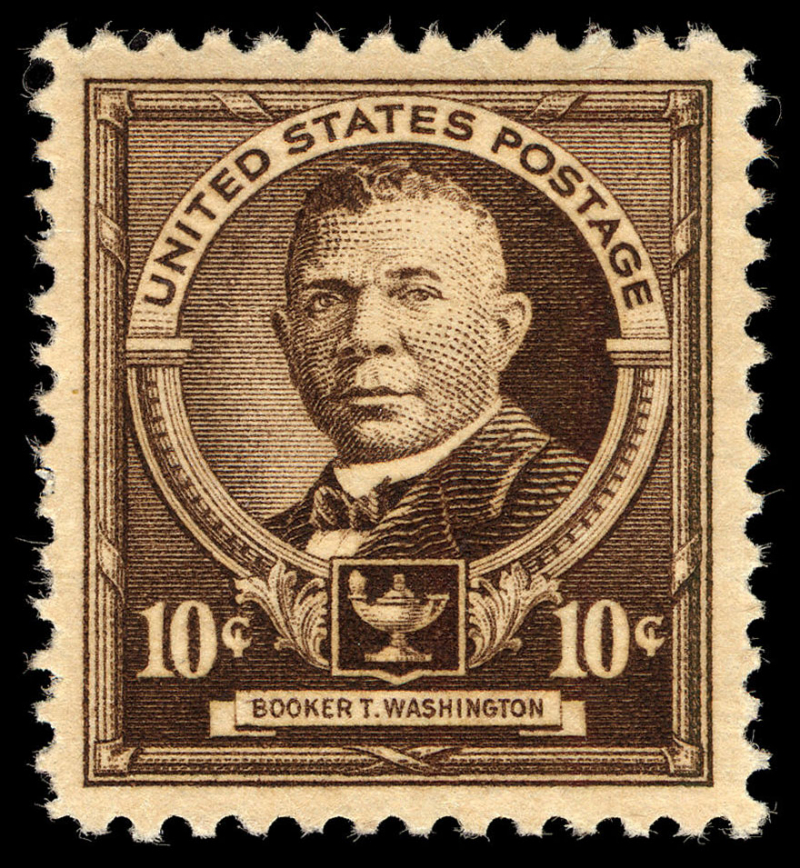
Photo: https://postalmuseum.si.edu/ 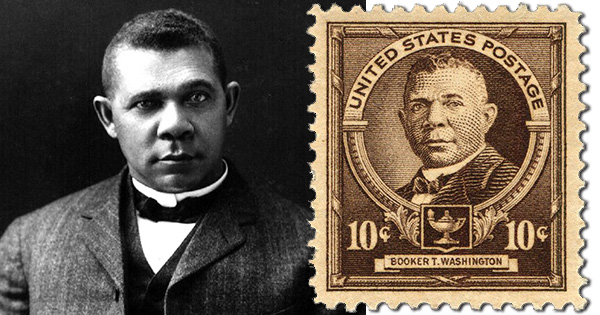
Photo: https://www.blackhistory.com/ -
W.E.B. Du Bois and Booker T. Washington were two outstanding black community leaders in the late 19th and early 20th centuries. On plans for the social and economic advancement of black people, they disagreed vehemently. Many of the current debates on how to solve racial and socioeconomic injustice, the function of black leadership, and what the "haves" in the black community owe the "have-nots" reflect their divergent ideologies.
To put it mildly, Washington's legacy and effects on civil rights are complicated. Other Black leaders, including the founder of the NAACP W.E.B. Du Bois, criticized him for advising Black Americans to focus on working hard and improving their economic circumstances through education and entrepreneurship rather than directly opposing segregation or battling for political and social rights. Some saw this as supporting the "separate but equal" policies of the Jim Crow era.
Washington's opinions were influenced, in part, by his desire to shield Black people from white confrontation and his belief that cooperation would lead to the eradication of racism in the long run. Washington was privately involved in funding and backing numerous legal actions against segregation and voter suppression, despite his public pronouncements that appeared to avoid conflict. To raise awareness of these concerns and fight injustice and inequality, he also made covert investments in important Black newspapers and periodicals around the nation.
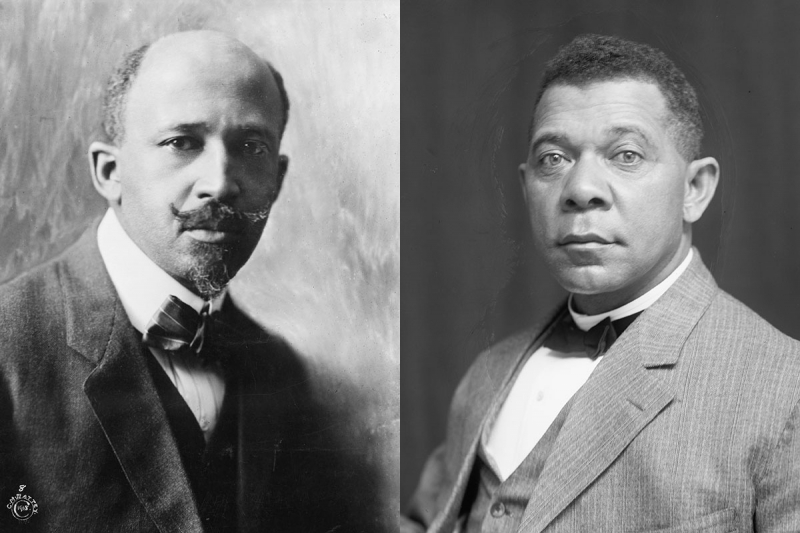
Photo: https://www.tc.columbia.edu/ 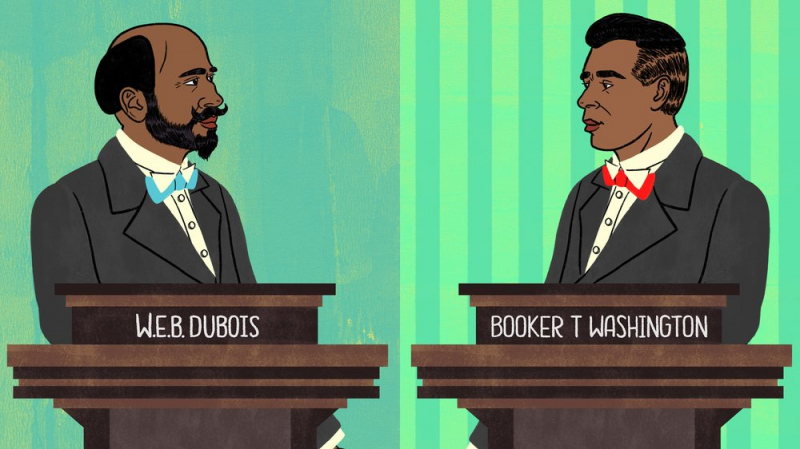
Photo: https://www.o-fishel.com/ -
Washington gained national notoriety, notably among politicians, as a result of his work at the Tuskegee Institute and his impact as a speaker and writer. Presidents William Howard Taft and Theodore Roosevelt consulted him, and he also welcomed President William McKinley to Tuskegee for a visit.
Washington was one of the first African Americans to attend a presidential dinner as an official guest after accepting President Roosevelt's offer in 1901. African-Americans had previously been invited to meetings at the White House by several earlier presidents, but never to a supper. Segregation was also made legal in 1901.
The story of the meal between the president of the United States and a former slave spread across the country. It changed the national dialogue on race at the time and was the focus of divisive essays and cartoons. White southerners were outraged upon learning of the dinner invitation, The History Channel reports, with one Memphis newspaper calling it "the most damnable offense which has ever been done by any citizen of the United States."
After receiving criticism, the Roosevelt administration changed their story, claiming that the dinner never happened or that it had been a casual lunch with no members of the Roosevelt family in attendance. Additionally, it was almost thirty years before another African American was invited to supper at the White House.
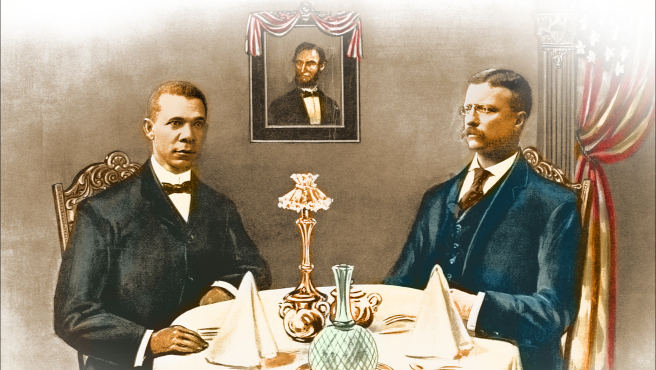
Photo: https://www.npr.org/ 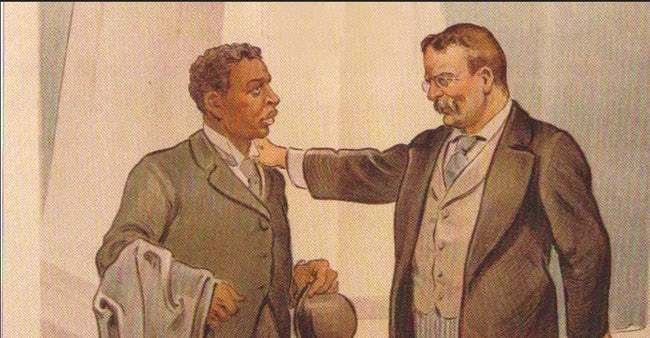
Photo: https://www.pinterest.com/ -
Many aspects of Booker T. Washington's legacy reflect his passion and dedication to education, but perhaps nowhere is this passion and commitment more apparent than in his work with Sears CEO Julius Rosenwald to support the establishment of more than 5,000 schools for Black children in rural communities throughout the South.
The Rosenwald Rural Schools Initiative was established to help address the stark disparity in funding for white and black schools in the South, despite the notion that everything was "separate but equal." For Black communities to establish locations for their kids to go to school, the Rosenwald Fund would offer financial assistance, architectural plans, and advice.
Washington also placed a high priority on preparing future teachers at institutions like Tuskegee so they could serve as educators in their home communities.
By the time the project was over, it had aided in the establishment of 5,357 schools and related structures in 883 counties, educating 663,615 pupils—more than a quarter of black students in the South. The Federal Reserve Bank of Chicago concluded a 2009 research that the schools had a significant impact on literacy, incomes, and the Great Migration to the North.
Approximately 10% of the original school buildings are still in use today; some serve as community centers and museums with signs describing their historical value, while others serve as barns and sheds with no mention of their former uses. Additionally, there is a nationwide initiative to preserve and restore these significant American history artifacts.
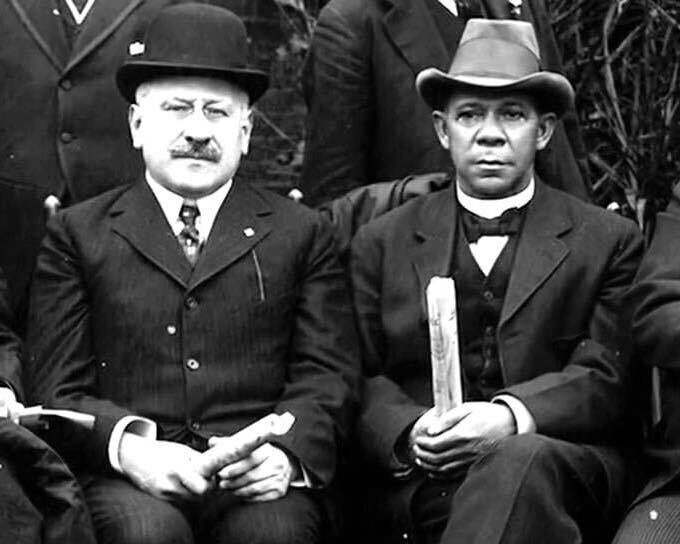
Photo: https://nppcha.org/ 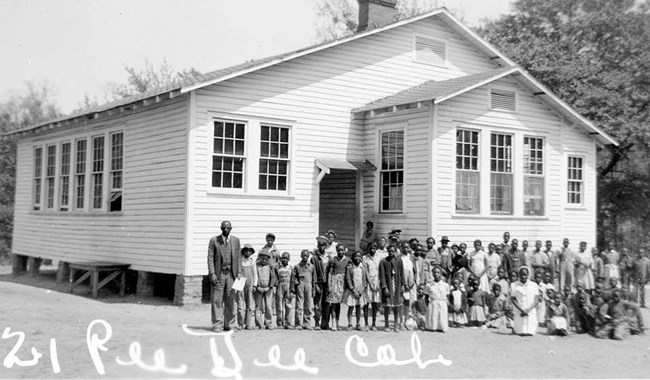
Photo: https://www.nps.gov/ -
You might be aware of Booker T. Washington's ties to Franklin County, but did you realize he also had ties to Montgomery County? Washington worked as a Superintendent at the Christiansburg Institute from 1896 until his passing in 1915. To help educate and prepare freed slaves for freedom, the institution was founded in 1866. It is considered one of the most interesting facts about Booker T. Washington.
When Washington got involved in the school in 1896, he shifted the curriculum from traditional courses like reading, writing, and history to one that was more focused on vocational training, following the same template he had used at Tuskegee. Numerous Tuskegee graduates were among the staff, which was exclusively made up of African Americans. The Christiansburg Institute will later develop into one of the most renowned institutions for African Americans in the nation.
A public, searchable archive of digital documents about the history of the Christiansburg Industrial Institute and more general African American history in Southwest Virginia is the Christiansburg Institute's Digital Archives. The Christiansburg Institute Museum & Archives and community members who donated digital copies to the digital archive are the sources for the items in the archive. The community archive at Christiansburg Institute Museum & Archives is expanding.
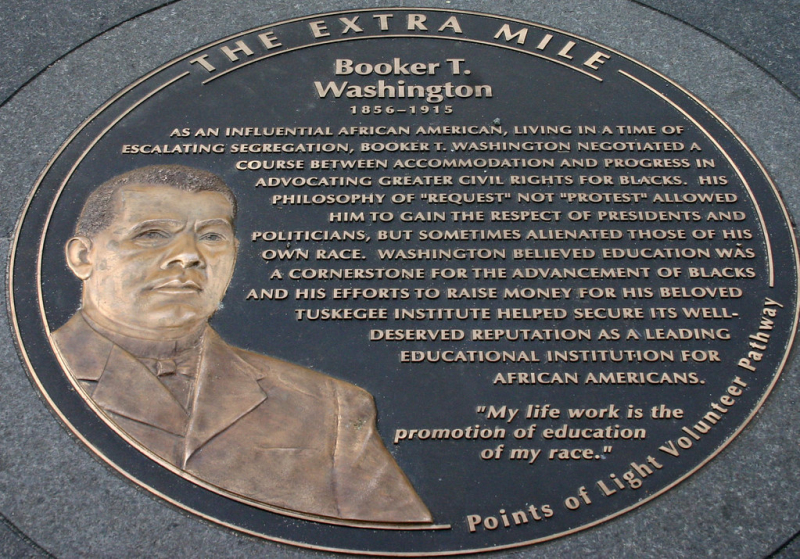
Photo: https://www.flickr.com/ 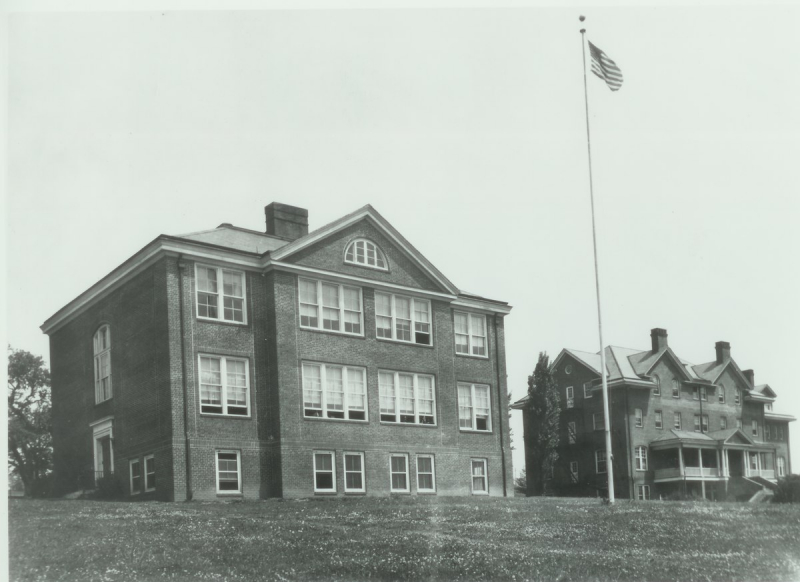
Photo: https://en.wikipedia.org/ -
Another divisive stance taken by Booker T. Washington was that for black people to become financially independent in the long term, they must initially serve as slaves to white people. He, therefore, thought that physical labor and vocational education represented the apex of professional freedom for African Americans. Additionally, Booker T. Washington thought that white people may act as role models for the black community by showing them how to be "civilized." Despite being divisive, Washington's ideas were widely accepted at the time. Later, when they had already been legally awarded voting rights and civic equality, leaders like W. E. B. Du Bois encouraged the black people to struggle for these rights and to pursue the same "classical" liberal arts education as wealthy whites.
To avoid any significant response from the white population, Washington always favored a "go-slow" strategy when it came to combating black tyranny. According to him, African Americans should "focus all their resources on industrial education, money acquisition, and the reconciling of the South." Since the majority of African Americans at the time resided in the South, Washington placed a great value on industrial training because he thought that these abilities would help the community of African Americans establish the solid foundation that is so much needed to advance. Long-term, he thought, "blacks would finally earn full involvement in society by proving themselves to be responsible, loyal American citizens" through this strategy.
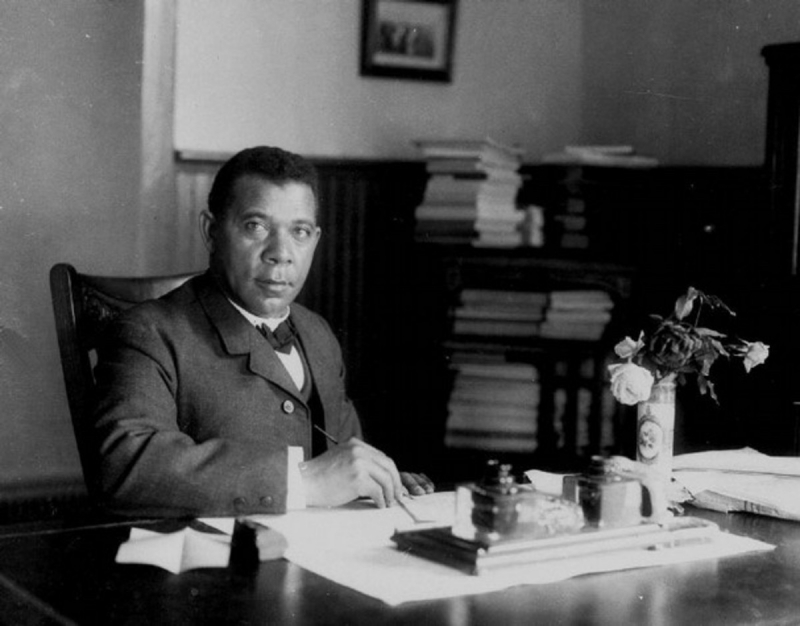
Photo: https://dp.la/ 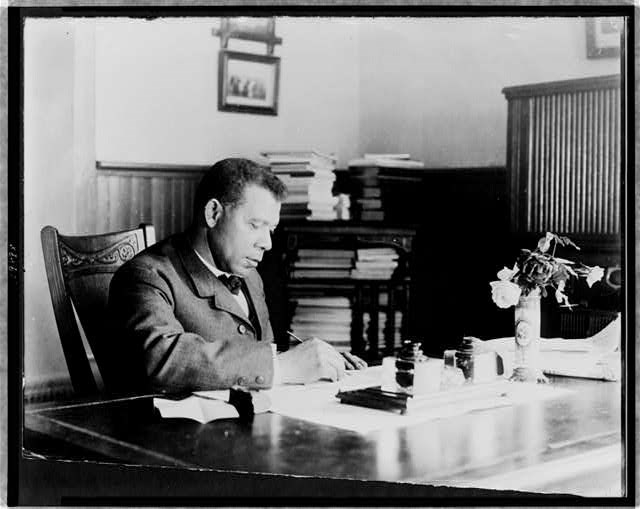
Photo: https://www.nps.gov/ -
Booker T. Washington was chosen to deliver the speech that would kick off the Cotton States and International Exposition in Atlanta, Georgia, on September 18, 1895. It was the first speech delivered by an African American before a racially diverse audience in the South and is frequently referred to as the "Atlanta Compromise." Although the exposition's planners were concerned that "public feeling was not prepared for such an advanced step," they concluded that having a black speaker would demonstrate racial progress in the South to Northern visitors. Washington advocated in it that African Americans should work hard, gain respect, and receive vocational training to contribute to the economic growth of the South rather than campaigning for political and social equality. He claimed that if they did this, African Americans would eventually acquire the respect of white society and be given full citizenship privileges.
Although most African Americans and whites in the country initially saw the Atlanta Compromise as a "revolutionary moment," it eventually did not sit well with the black community and was rejected by the very people who had earlier supported it. It was generally criticized for being overly tolerant of the white population and providing little benefit to black people.
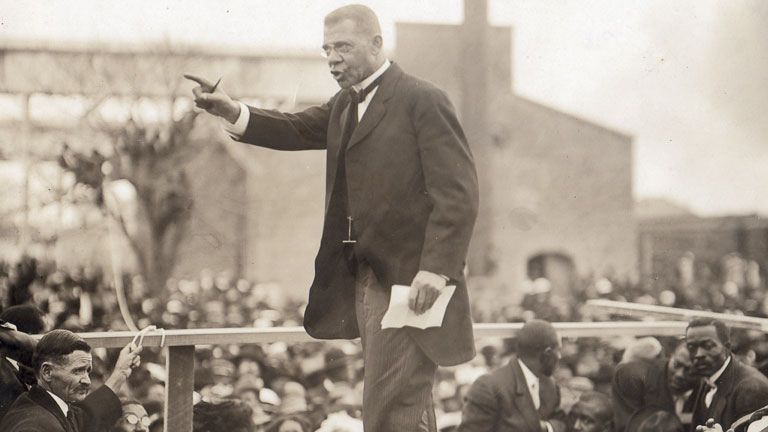
Photo: https://laborhistoryin2.podbean.com/ 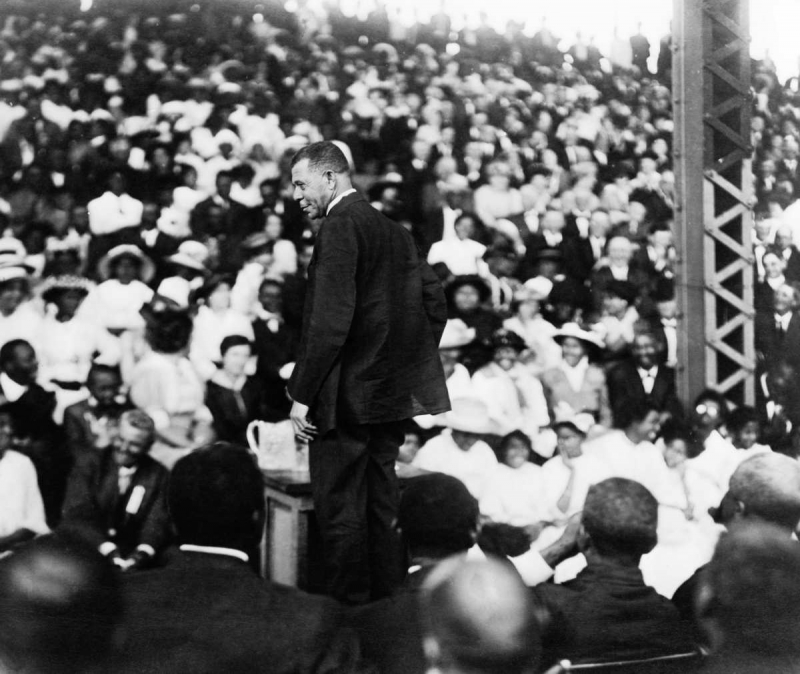
Photo: https://www.history.com/ -
Booker T. Washington employed Edgar Webber as a ghostwriter for his autobiography, The Story of My Life and Work, which was released in 1900. Despite the book's successful sales, Washington was not at all happy with the writing, describing it as flat and poorly edited. Later, he enlisted the aid of renowned author Max Thrasher to help him put together a second autobiography titled Up from Slavery, which was released the following year.
Washington chronicles his transformation from slave to instructor in Up from Slavery. He directly attributes his success as a man of action in his community and country to his education in the early sections of the book, which also detail his childhood as a slave and his attempts to get a higher education. Washington describes how he went from being a student to becoming a teacher, as well as his growth as a teacher and the creator of the Tuskegee Institute in Alabama. He recounts the development of Tuskegee, from classes held in a slum to campus with numerous new buildings. Washington outlines his work as a public speaker and civil rights activist in the last chapters of Up From Slavery. His book comes to a close with a description of the awards and accolades he has won for his efforts, including a Harvard honorary degree and two key trips to Tuskegee by President McKinley and General Samuel C. Armstrong.
The African-American community was significantly impacted by Up from Slavery, which went on to become a bestseller. In addition, it was listed among the top 100 books of the 20th century by the Modern Library.
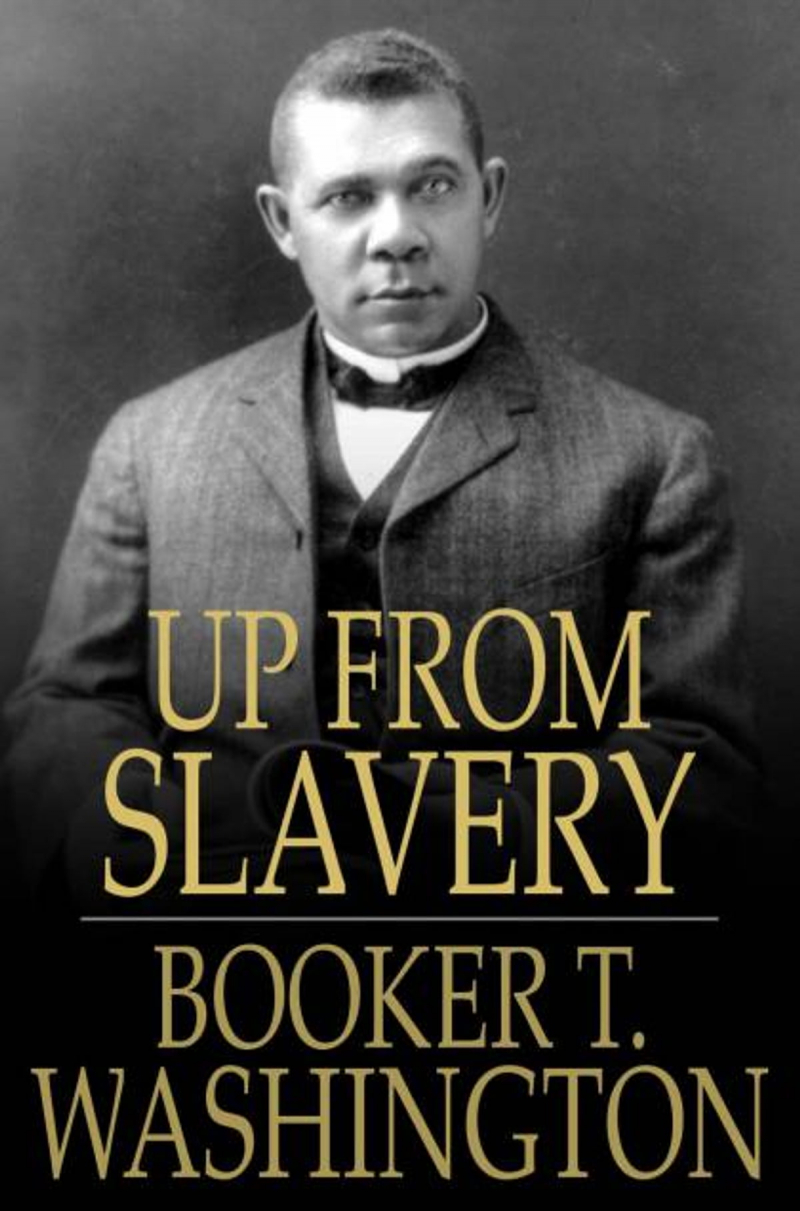
Photo: https://www.kobo.com/ 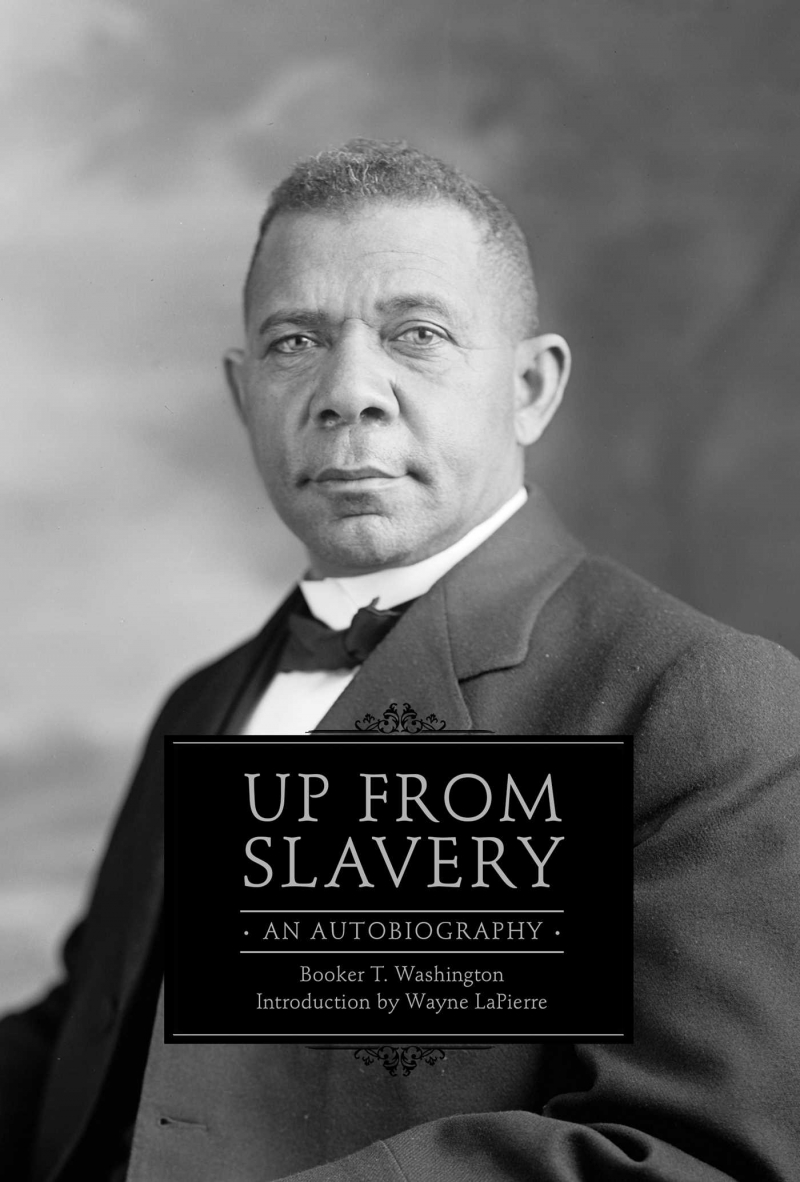
Photo: https://www.simonandschuster.com/ -
To end the list of ten most interesting facts about Booker T. Washington he was famous for his great sense of humor. Together with his students, Booker T. Washington committed themselves to create the budding Tuskeegee Institute, constructing the campus, and teaching a course that combined intellectual and practical training. Washington's efforts to fundraise and travel to maintain Tuskegee viable and expanding increased as the college progressed. Washington rose to prominence as an effective public speaker for both black and white audiences, using humor to put people who might disagree with him at ease.
For both black and white audiences, Booker T. Washington was a dynamic public speaker of his era. He frequently employed comedy as a calming technique, especially for those who didn't share his viewpoints. James Hardy Dillard, a biographer of Washington at the time, claimed that he could "not only tell a good joke well but tell what was simply the shadow of a joke so skillfully that his audience would be shaking with laughter." Many of Washington's recorded one-liners make use of accents and racial stereotypes that are now deemed improper, sometimes humorously. A kinder illustration of this was when Washington said, "I feel like a huckleberry in a bowl of milk," during the ceremony in which he became the first African American to receive an honorary master's degree from Harvard.
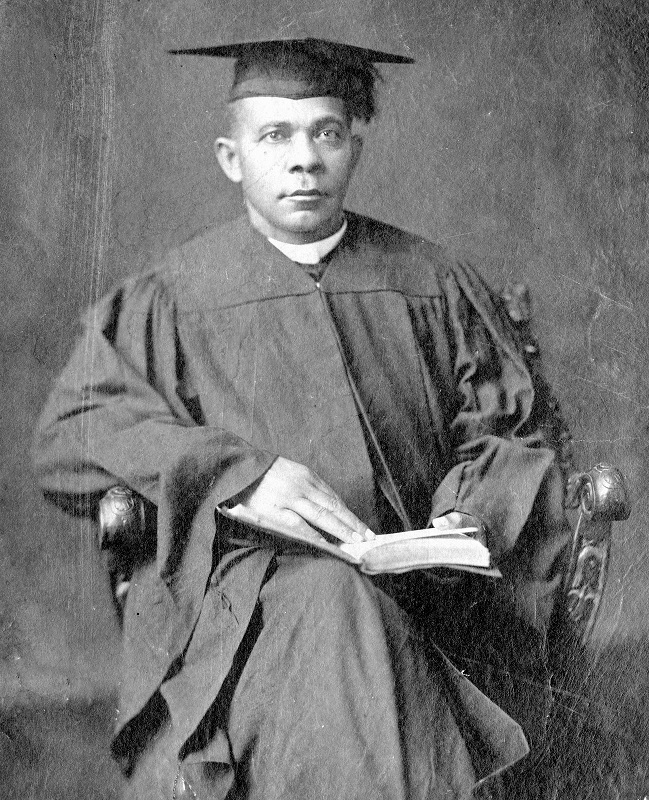
Photo: https://1881legacy.wordpress.com/ 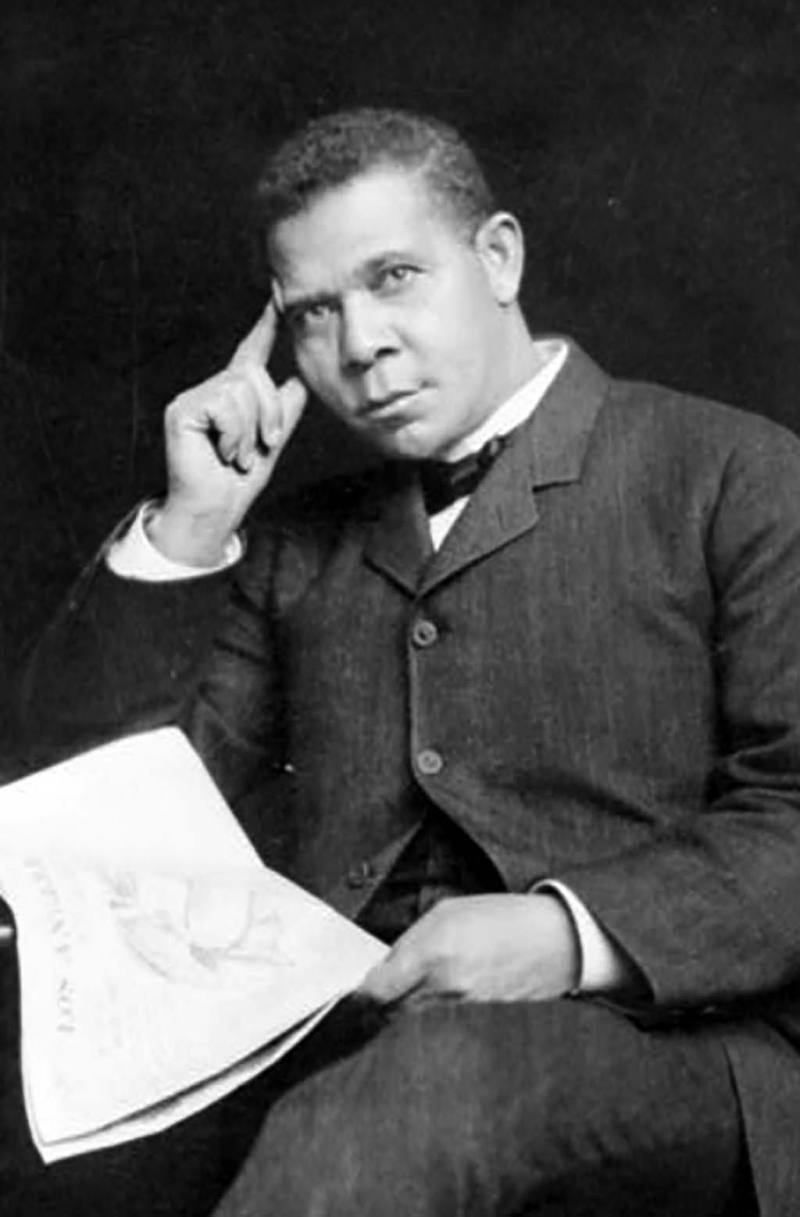
Photo: https://www.blackpast.org/












